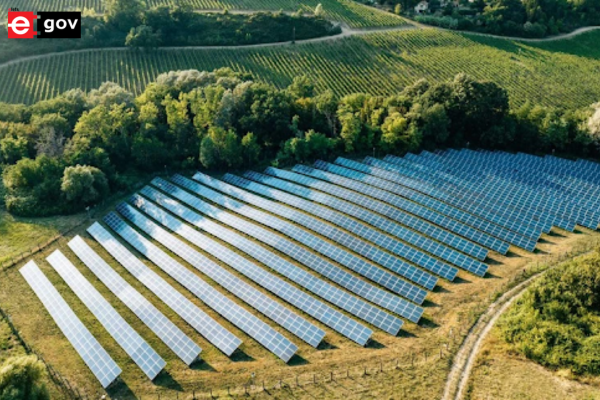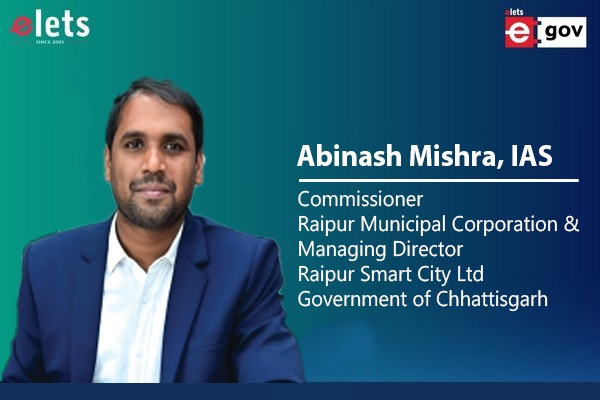
“India’s place at the bottom of the Environmental Performance Index– is the ranking fair or flawed?”
In the realm of global environmental assessments, the Environmental Performance Index (EPI) serves as a benchmark for nations worldwide. However, the latest edition of the EPI in 2022 should ignite a fierce debate in India, where the nation finds itself at the bottom of the rankings. Beyond the headlines, a closer inspection reveals a web of biases that challenge the credibility of the assessment and question its applicability to developing nations like India.

The EPI is fraught with biases that disproportionately disadvantage developing nations. India, with its unique challenges, has raised several valid concerns, leading to a robust examination of the assessment’s methodologies and indicators.

One of the primary concerns lies in the choice of indicators used in the EPI. For instance, the stringent air quality standards set by India, although more rigorous than those of some developing countries, are still lower than those of developed nations. This paradox places India at a disadvantage, highlighting the unsuitability of certain indicators for making fair cross-country comparisons.

Another critical concern surrounds the reliability of the data used for developing countries in the EPI. With data collection methodologies varying widely across nations, questions arise about the accuracy and representativeness of the information. This, in turn, has the potential to misrepresent India’s true environmental performance, exacerbating the biases embedded in the index.

The EPI’s approach also contains the subjectivity inherent in certain indicators and the weighting assigned to different environmental issues. Subjective assessments and imbalanced weights skew results against India’s priorities. The failure to adequately consider India’s unique challenges, such as rapid urbanization, poverty, and resource limitations, raises questions about the fairness of the assessment.
Critics assert that the EPI, in its pursuit of evaluating environmental outcomes, overlooks the context and ongoing efforts in developing nations. India’s ambitious initiatives aimed at improving environmental performance, from renewable energy projects to biodiversity conservation, seem to be lost in the numerical shuffle. The EPI’s focus on outcomes without considering the journey undermines the credibility of the assessment.
The Indian Ministry of Environment has officially criticized the EPI 2022, asserting that the index relies on “unfounded assumptions” and “unscientific methods.” The government rightly contends that the EPI paints an inaccurate picture of India’s environmental performance, emphasizing the nation’s strides in renewable energy, forest cover, and biodiversity conservation.
Also Read | Gujarat’s Significant Contribution to India’s Environmental Commitments
While criticisms abound, proponents of the EPI acknowledge its limitations but argue that it provides a necessary tool for benchmarking and tracking environmental progress across nations. They stress the importance of holding all countries, including developing ones, accountable for their environmental performance. Advocates also highlight the need for developing countries to improve data collection and transparency to ensure accurate assessments, emphasizing the universal applicability of such standards.
From a data and policy perspective, it is imperative to address data gaps and engage in constructive dialogue pivotal for a nuanced and accurate understanding of environmental challenges and progress in developing nations like India. The EPI, while a valuable tool, should evolve to consider the unique contexts and challenges faced by countries in various stages of development.
The call for addressing data gaps echoes across various expert circles. Developing countries, including India, are in the process of building robust data collection and monitoring systems. This includes investments in technology, training personnel, and establishing clear data governance protocols. Leveraging local knowledge and citizen science, fostering collaboration and data sharing, and embracing new technologies can contribute to a more comprehensive picture of environmental issues in the future.
Open dialogue and collaboration between developing country representatives, environmental experts, and the EPI creators are crucial for improving the fairness and accuracy of the index. Policymakers and researchers should engage in inclusive stakeholder dialogues, ensuring diverse perspectives are considered. Open and transparent communication about data limitations and uncertainties can prevent misinterpretations, fostering a sense of collective responsibility for addressing environmental challenges.
Indian Perspective
From the Indian perspective, strengthening air quality monitoring systems in rural areas, engaging local communities in water management, utilizing satellite data for deforestation monitoring, and organizing multi-stakeholder forums on climate change can be robust steps forward. By addressing data gaps and engaging in constructive dialogue, India can gain a deeper understanding of its environmental challenges and opportunities, paving the way for more effective and tailored policies. India is already on the right path with its focus on Digital India.
The EPI’s metrics could be enhanced to provide a fairer and more nuanced picture of India’s environmental performance. Inappropriate indicators, data quality and availability issues, subjectivity in weighting, and potential biases are areas that need attention. Developing context-specific assessments, increasing weight on relevant efforts like clean energy, improving data collection, and fostering open dialogue can transform the EPI into a more valuable tool for supporting environmental progress in developing countries.
From the perspective of a renewable energy expert in India, additional concerns arise. The EPI’s focus on outcomes over efforts disregards India’s significant strides in promoting renewable energy. Unfair weighting of indicators, such as air quality, may penalize developing countries despite their efforts to transition to cleaner energy sources. Some indicators may be inapplicable or outdated for comparing developed and developing nations.
To address these concerns, refining indicators and data collection methods through collaboration with developing countries, especially India, which has the greatest number of people in the world and has a massive global footprint, investing in data infrastructure and capacity building, adopting context-specific assessments, and promoting open dialogue to improve fairness and accuracy will be a game-changer.
In the grand tapestry of global environmental assessments, the EPI plays a crucial role. However, the controversies surrounding India’s ranking in the latest edition underscore the need for continuous improvement and adaptability of tools like EPI. An unbiased, nuanced, and context-specific evaluation is not just the demand of the hour but a prerequisite for steering the world towards a more sustainable future. As the debates rage on, one thing is clear – the path forward must be paved with collaboration, transparency, and an unwavering commitment to environmental justice for all nations.
In cultivating high performers, the emphasis should lean towards offering more carrots than wielding sticks, fostering a positive and motivational environment that inspires excellence. India is a globally recognized leader in sustainable practices and clean energy acceleration. Biased tools, therefore, can be counterproductive in global efforts to fight climate change.
Also Read | Evolution of Environmental Diplomacy from Global To National
The importance of tools like the Environmental Performance Index (EPI) becoming inclusive and unbiased cannot be overstated, particularly in the context of the arduous journey that developing countries undertake to address climate change impacts, often not caused by them. Climate change knows no borders, and its consequences disproportionately affect vulnerable nations that contribute the least to global emissions. In this scenario, tools such as the EPI must evolve to reflect the unique challenges faced by developing countries, acknowledging the historical context, economic constraints, and priorities that shape their environmental policies. Failure to achieve inclusivity and impartiality in these assessments risks undermining the genuine efforts of developing nations to combat climate change and hampers their ability to access international cooperation. It is crucial that such tools foster a fair and comprehensive evaluation, recognizing the shared responsibility of all nations in crafting sustainable solutions for a global challenge. Only through inclusivity and unbiased assessments can the international community collectively address climate change and work towards a more equitable and sustainable future.
Views expressed by: Suman Chandra, IAS, Director, Ministry of New and Renewable Energy (MNRE), Government of India.
Be a part of Elets Collaborative Initiatives. Join Us for Upcoming Events and explore business opportunities. Like us on Facebook , connect with us on LinkedIn and follow us on Twitter, Instagram.
"Exciting news! Elets technomedia is now on WhatsApp Channels Subscribe today by clicking the link and stay updated with the latest insights!" Click here!













